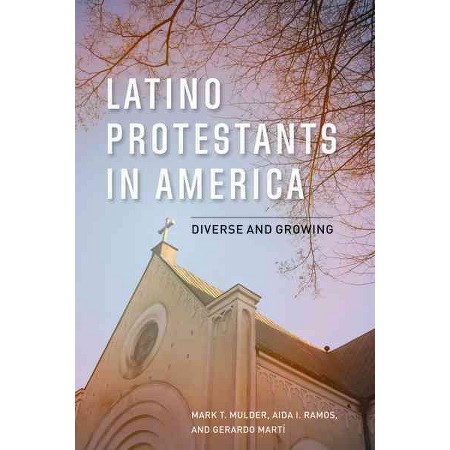Hispanic Protestants in the U.S. are one of the few sectors of American Christianity that continue to grow, but they are also becoming so diverse that it is difficult to make many generalizations about them, according to the new book
Latino Protestants in America (Rowman and Littlefield, $38), by Mark Mulder, Aida I. Ramos, and Gerardo Marti. The authors note that for various reasons beside just language differences, Latino Protestants have been difficult to track through traditional surveys, though the authors employ a good deal of survey analysis as well as ethnographic research to fill in the gaps about them. Based on a national study of Latino churches and ministries in various U.S. regions, the researchers confirm survey findings that Hispanic Protestants often stress their religious identity more than their ethnicity, yet they also note that becoming Protestant does not make them less Latino in their practices or identity. The book looks at both Latino mainline and evangelical churches, often marked by their varying attitudes toward Catholicism, with the former sometimes adapting Catholic traditions and liturgy (leading even long-time attenders to believe they are attending Catholic churches) while evangelicals stress their differences from Catholics (though in a less polemical way than in the past).
Other topics and trends cover the increasing consolidation of Latino parachurch organizations (such under as the National Hispanic Christian Leadership Conference). These larger groups are increasingly addressing social issues such as immigration and community development. Even though showing some variation in liberal or conservative orientations, involvement in social and community issues is common to most of these churches. The book concludes with as many questions as answers about the state of Latino Protestants, especially on the pressing matters of immigration, citizenship, and “document status.” The authors argue that even though the immigration rate is down from Mexico and Central America due to declining fertility, immigration dynamics and policies may be more likely to impact Latino Protestants than Catholics because the former have higher birth rates and maintain stronger network ties to churches and fellow believers in their home countries, which facilitates more migration.

